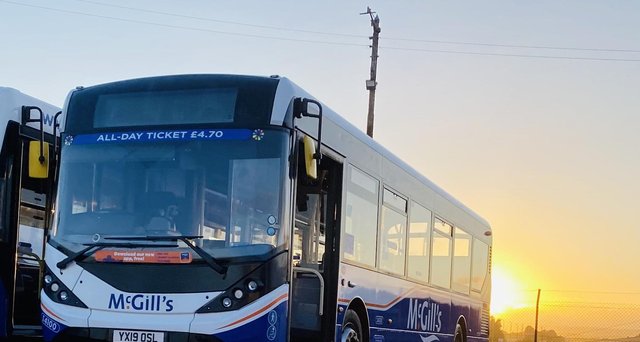August 19 2021
Action is needed now to tackle challenges facing the planet, and Ralph Roberts, CEO of McGill’s Buses, writes about how the time is right for a bus renaissance.
Of course, buses have always been a green option for our towns and cities. Whilst they take many cars off of the road and divide their tailpipe emissions over as much as 75 passengers, they have been seen as purveyors of poor air quality due to smoky exhausts.
This hasn’t been the case for many years now. Since 2014 when Euro VI emissions became the norm, smoke from a bus exhaust gradually became a distant memory. Legislators and town hall civil servants seem not to have noticed though given the number of LEZs and CAZs that target only bus. Meanwhile, bus managers must get on with the pragmatic job of keeping the country connected.
There is a view, that if we look at the ‘well to wheel’ carbon footprint of a clean diesel bus -vs- a BEV (battery electric vehicle), it takes some time for the latter to pull ahead. That spectacularly misses the point though. During the time that the BEV is mitigating this embedded carbon, it is delivering journeys that emit practically zero pollutants at the point of use and air quality is the big winner from this.
Additionally, as Britain’s governments realise that the only way to let the bus do its job is to free it from car based congestion, more and more people will switch mode from car to bus – at least for some journeys – and the carbon saved on these journeys multiply the benefit to the environment. Hydrogen fuel cell buses (FCEV) are now making an appearance also and I am confident that the zero emission energy mix for buses will be a diverse platform to lead the country in carbon free transport. Between this, and the greening of our electricity production, the embedded carbon worries will evaporate.
As we see the impact of global warming on our TV screens every evening, we know that November’s COP26 negotiations in Glasgow are more important than any that precede them. The time is right for a renaissance for the humble bus. Policy makers must be brave and implement the measures that we all know are right, and not just what is popular. In amongst this, all of us in the bus industry must be on our A-game. We must be ready to fill the void and show the policy makers that we can be trusted to deliver. Time is short, action is needed now, and we are able to move fast. Wasting further years on pointless outdated, ideology driven debates over control and ownership will simply cause further irreversible damage to our planet.
